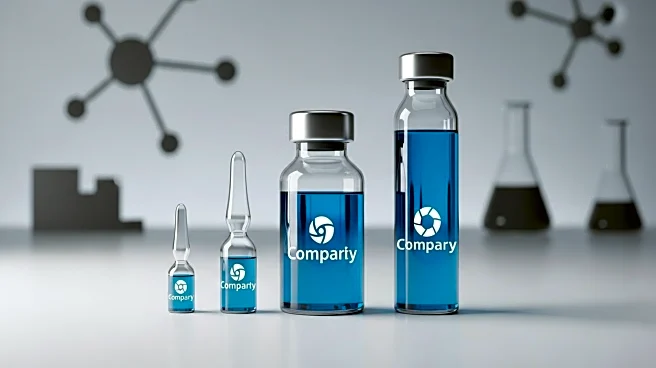What is the story about?
What's Happening?
The 2025 NextGen Supply Chain Conference is set to feature a prominent lineup of speakers from the life sciences and healthcare sectors. Scheduled to take place from October 22-24 at the W Nashville in Tennessee, the conference will include presentations from major companies such as Eli Lilly, Johnson & Johnson MedTech, Kenvue, Regeneron, Imbed Biosciences, Guardian Drug Company, Medline Industries, and KeyChain Consulting. The event aims to bring together over 50 senior executives and thought leaders from the supply chain ecosystem. The program will offer keynote presentations, awards recognition, and breakout sessions focusing on how these companies are leveraging AI, automation, data, and innovative strategies to transform their supply chains.
Why It's Important?
The inclusion of major life sciences and healthcare companies at the 2025 NextGen Supply Chain Conference underscores the growing importance of these sectors in the broader supply chain landscape. As these industries continue to evolve, the integration of advanced technologies such as AI and automation becomes crucial for maintaining efficiency and competitiveness. The conference provides a platform for industry leaders to share insights and strategies, potentially influencing future trends and innovations in supply chain management. This focus on life sciences and healthcare highlights the sectors' critical role in addressing global health challenges and improving patient outcomes.
What's Next?
As the conference approaches, stakeholders in the supply chain and healthcare industries will likely pay close attention to the insights and strategies shared by the participating companies. The event may lead to new collaborations and partnerships aimed at enhancing supply chain resilience and efficiency. Additionally, the discussions and outcomes from the conference could influence policy decisions and investment priorities within the life sciences and healthcare sectors, driving further advancements in technology adoption and supply chain optimization.
Beyond the Headlines
The emphasis on life sciences and healthcare at the conference reflects broader trends in the industry, such as the increasing demand for personalized medicine and the need for robust supply chains to support global health initiatives. The integration of AI and automation in supply chain processes not only improves operational efficiency but also enhances the ability to respond to disruptions, such as those experienced during the COVID-19 pandemic. This focus on innovation and technology adoption is likely to have long-term implications for the industry, potentially leading to more sustainable and resilient supply chains.















